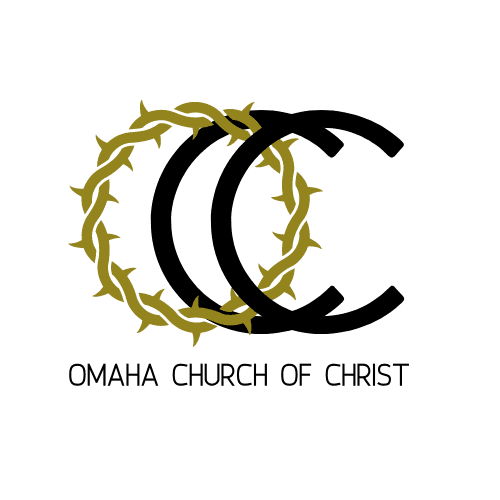The Discipline of Celebration
Submitted by Barry Payne
Celebration
Two Aspects of Celebration
Halal - Rejoice Chagag – To Festival
Celebrating Festivals
The purpose of the festivals was to remember God, his provision, and his relationship with his chosen people. Of the seven festivals commanded by God, three required gathering at the Temple. These three were festival holidays in the highest sense. They were the experiences that gave strength and cohesion to the people of Israel.
Here are three of the festivals detailed for later study at home:
1-Passover is a family celebration that centers around remembering God freeing his people. The youngest child asks four questions that are traditionally answered like this:
- We eat only matzah because our ancestors could not wait for their breads to rise when they were fleeing slavery in Egypt, and so they were flat when they came out of the oven.
- We eat only Maror, a bitter herb, to remind us of the bitterness of slavery that our ancestors endured while in Egypt.
- The first dip, green vegetables in salt water, symbolizes the replacing of our tears with gratitude, and the second dip, Maror in Charoses (a paste made with fruits and nuts), symbolizes the sweetening of our burden of bitterness and suffering.
- We recline at the Seder table because in ancient times, a person who reclined at a meal was a free person, while slaves and servants stood.
2-Pentecost is one part of a set of festivals that celebrates another year of God providing for his people. Everyone brought their first fruits to present to God at the Temple. Josephus described Pentecost as “multitudes filling the city from the countryside”. Other sources describe a procession over several days with music and dancing. It’s no wonder that Pentecost described in Acts Chapter 2 had thousands of people present near the temple.
3-The Feast of Tabernacles is a weeklong festival to remind his people that God sheltered them on the journey from Egypt to the Promised Land. Families live in temporary structures and focus on Jewish unity.
• A blessing is said on six of the seven days to thank God for sanctifying his people, providing the law, and giving life.
• Every day, Psalms 113-118 are read as part of a prayer service.
• It is traditional to sing, dance, and eat with other families in the temporary structures.
Remembering God Brings Gratitude
At times we can have short memories about what God has done for us as individuals and as a body of believers. We can ask ourselves about what God has done for us lately. The discipline of celebration gives us gratitude for the work of God in all our lives. As a body of believers, we have our own festivals to help us to remember what God has done for us:
• We celebrate the sacrifice of Jesus on the cross because He freed us from the slavery of sin.
• We celebrate the resurrection because our souls are sweetened by our new resurrected life.
• We meet on Sundays to celebrate with songs, skits, and Scripture reading. We celebrate what God is doing for each other, our local church, and the church worldwide.
• We meet in our temporary homes to be unified with each other. We eat meals together, share the Word, pray, and simply have fun together.
All these festivals run the risk of becoming rituals. Much like the religious people of Jesus’ day, the festivals become a set of tasks to complete to avoid punishment and to attempt to make God pleased with our rituals, if not our lives on Earth. These festivals are meant to be about God, not about us as individuals, a church, or a movement. We celebrate to remember who God is and what He has done. When we remember God, we are filled with gratitude.
Praise and Rejoicing with God
Luke 4:18-19
When Jesus declared the year of the Lord’s favor, this is like declaring a year of jubilee. The year of Jubilee meant canceling all debts, releasing slaves, planting no crops, returning property to the original owners, and a year of rest for the land and the people. Jesus goes further, the poor receive good news, prisoners are released, the blind see and the oppressed are set free; who can help but praise God and shout for joy?
Jesus said that all of this is fulfilled by him. Those of us that follow him experience this through our faith in him – our debt to God is canceled, we are set free from sin, we see clearly who God is and are no longer oppressed by anything in this world. As the author of Hebrews says, we can enter into rest through the blood of Jesus. Because of everything done for us, we praise God.
The Joy of the Lord is our Strength
Nehemiah 8:10
Joy is the strength that keeps us going when grief and pain bring us down. The Israelites grieved when they heard the word of the Law, but Ezra and the priests encouraged them to celebrate. As the people celebrated, they were filled with joy. Why? Because they understood the words of God read to them. They understood that the Law was not so much about what they were not doing or the glory of the past. The Law was about what God has done, is doing, and will do for His people. They had promises for God that they could hold on to when times would get tough.
We focus on Jesus who endured the cross because of the joy set before him (Hebrews 12:2). The joy set before him was us. We have the promise that his sacrifice reconciled us to God. We have the promise of eternal life, but also the promises of God’s faithfulness while we are here on Earth. We have the promise of the Holy Spirit and joy is a fruit of the Spirit in our lives. (Gal 5:22)
The Path to Joy
John 15:10-13, Philippians 2:3-4
Joy is a calm delight in the power of God in our lives. In our spiritual life joy comes from obedience. In the verse above, Jesus says that joy is made complete by following Jesus’ commands. His command here is to love as He loved. He continues by setting a high standard, that the greatest love is to set aside our lives for others. This is not a warm and fuzzy kind of love that Jesus is talking about, but a love to look to the needs of others, not just our own. Paul echoes this in Philippians by putting away selfish ambition or a high opinion of ourselves. This is a difficult path that will quickly expose simply feeling good about your own deeds. Obedience brings a full joy that is more than happiness or sentimentality. It is freedom from the tyranny of our appetites to bring God’s love to a world that desperately needs it.
Joy is the result of the spiritual disciplines’ functioning in our lives. God transforms our lives through the Disciplines. We will not know joy until there is a transforming work within us. Moreover, there is no shortcut to the transformative power of God. Many will try to force joy to come quickly. When joy doesn’t arrive at a fast enough pace, they may decide to search for happiness instead. Joy and happiness are not the same.
If nothing has changed in a person’s life, no amount of joy can enter in. God has not broken into the routine experiences of their daily lives. The joy that comes from celebration arrives when the common ventures of life are redeemed.
What Now?
Here is the end of the Celebration of Discipline quoted from Richard Foster. I couldn’t say it any better than this:
We have come to the end of this study, but only to the beginning of our journey. We have seen how meditation heightens our spiritual sensitivity which, in turn, leads us into prayer. Very soon we discover that prayer involves fasting as an accompanying means. Informed by these three disciplines, we can effectively move into study which gives us discernment about ourselves and the world in which we live.
Through simplicity we live with others in integrity. Solitude allows us to be genuinely present to people when we are with them. Through submission we live with others without manipulation, and through service we are a blessing to them.
Confession frees us from ourselves and releases us to worship. Worship opens the door to guidance. All the disciplines freely exercised bring forth the doxology of celebration.
The classical disciplines of the spiritual life call us higher. We share confidence because we trust in the one who went before us and overcame the world. Let everything that has breath praise the Lord. Praise the Lord.
Past Blogs



